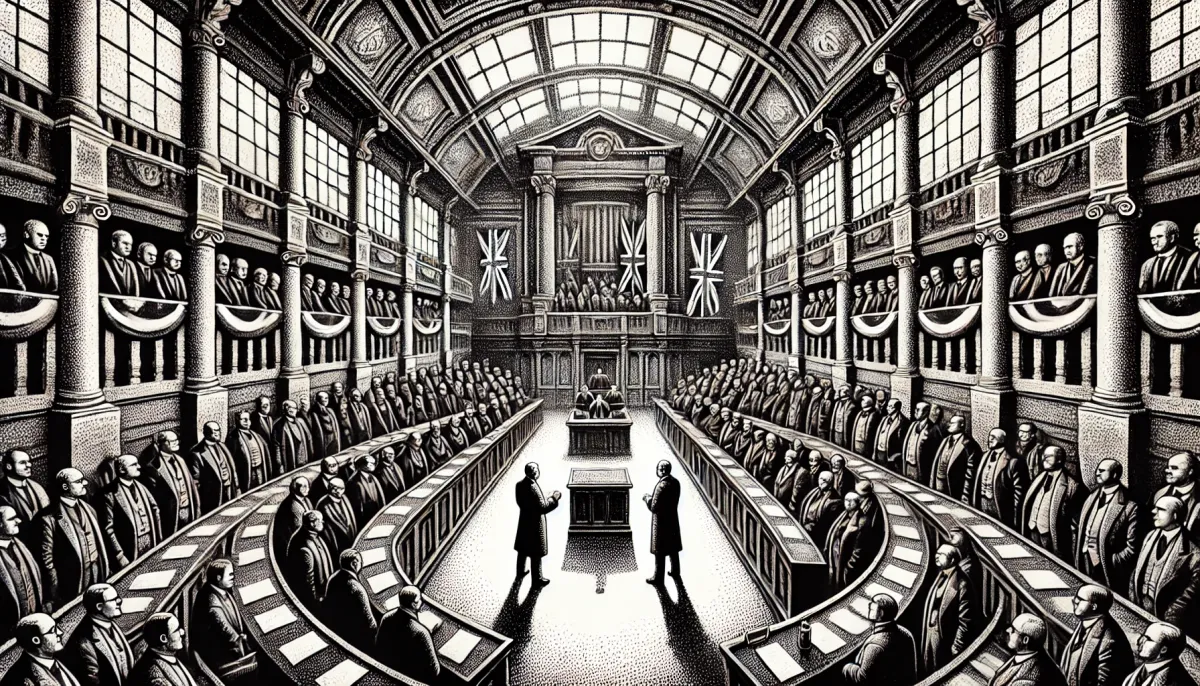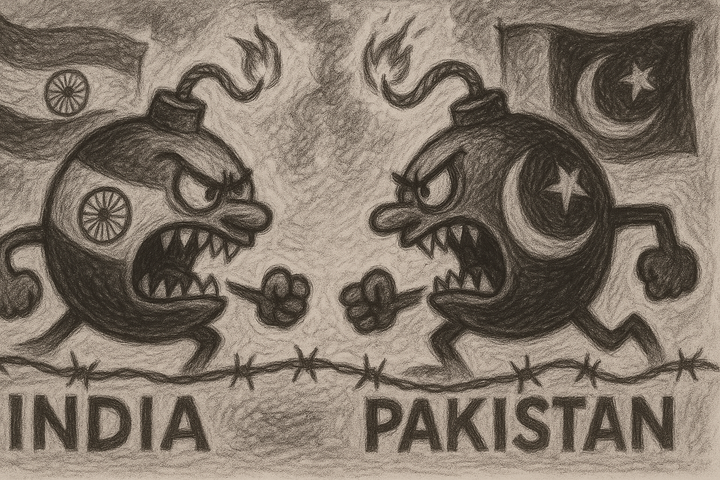Trump vs. the CFPB

Key Points
It seems likely that Donald Trump opposes the Consumer Financial Protection Bureau (CFPB) and wants to reduce its power or eliminate it.
Research suggests his actions, like halting CFPB operations and firing its director, reflect this stance.
The evidence leans toward controversy, with critics arguing the CFPB lacks accountability, while supporters highlight its consumer protection role.
Background on the CFPB
The Consumer Financial Protection Bureau (CFPB) is a U.S. government agency created in 2010 under the Dodd-Frank Act to protect consumers from unfair, deceptive, or abusive financial practices. It oversees banks, credit card companies, and other financial entities, ensuring fair treatment and transparency (Consumer Financial Protection Bureau Overview).
Trump's Stance and Actions
During his first term (2017–2021), Trump took steps to limit the CFPB's influence, such as appointing directors who reduced enforcement actions and relaxed regulations. Recent reports, as of February 2025, indicate he has continued this approach, ordering a halt to most CFPB operations and firing Director Rohit Chopra on February 1, 2025 (Trump has subdued the Consumer Financial Protection Bureau | CBS News).
On February 10, 2025, Trump stated he intended to "totally eliminate" the CFPB, calling it "a very important thing to get rid of" (Trump admin denies plans to shutter CFPB | Reuters).
However, his administration later clarified it would keep a "more streamlined" CFPB, creating some ambiguity. This reflects a broader policy of reducing regulatory oversight, aligning with Republican views that the CFPB imposes burdensome regulations on financial institutions. Unexpectedly, despite his populist rhetoric, Trump's actions seem to favor big banks over consumer protections, potentially impacting everyday Americans' financial security.
Survey Note: Detailed Analysis of Trump's Position on the CFPB
This section provides a comprehensive examination of Donald Trump's position on the Consumer Financial Protection Bureau (CFPB), drawing from recent reports, historical actions, and public statements as of February 27, 2025. The analysis aims to capture all relevant details, offering a professional and thorough overview for readers seeking a deep understanding of the topic.
Overview of the CFPB
The CFPB, established in 2010 under the Dodd-Frank Wall Street Reform and Consumer Protection Act, is an independent U.S. government agency tasked with protecting consumers in the financial sector (About us | Consumer Financial Protection Bureau). Its jurisdiction includes banks, credit unions, securities firms, payday lenders, and other financial entities, focusing on ensuring fair treatment, transparency, and protection from unfair, deceptive, or abusive practices (Consumer Financial Protection Bureau - Wikipedia). Since its inception, the CFPB has been a polarizing entity, with Democrats praising its consumer advocacy and Republicans criticizing its regulatory overreach and lack of accountability.
Trump's Historical Position During His First Term (2017–2021)
During his first term, Trump expressed skepticism toward the CFPB, viewing it as an overreaching regulatory body. His administration appointed Mick Mulvaney as acting director in 2017, who implemented significant changes, such as requesting a zero-dollar budget from the Federal Reserve in 2018 to limit operations (The CFPB Pendulum Swings Back | Capstone DC).
Mulvaney's tenure focused on reducing enforcement actions and prioritizing voluntary compliance, aligning with Trump's deregulatory agenda. Later, Kathy Kraninger, Trump's confirmed director, continued this trend, easing mortgage and credit card disclosure rules and relaxing protections against predatory loans, which some critics argued left consumers vulnerable (How might the Consumer Financial Protection Bureau change under Trump's presidency? | NPR).
Despite these changes, the CFPB still issued enforcement actions, averaging 29 per year, with a high in 2020, indicating some continuity in oversight (Trump's White House Is Disabling the CFPB | Investopedia).
However, Trump's overall approach was to "defang" the agency, as noted in an X post from November 2020 (X post). Recent Actions and Statements in 2025Since returning to office, Trump's actions have intensified his opposition to the CFPB. On February 1, 2025, he fired Rohit Chopra, the CFPB director appointed by President Biden, leveraging a 2020 Supreme Court ruling that allows the president to remove the director at will (Trump fires Rohit Chopra as CFPB director | NPR).
On February 8, 2025, acting director Russell Vought, appointed by Trump, ordered a halt to nearly all CFPB work, closing its headquarters and instructing staff to stay home, effectively paralyzing operations (The Trump administration has stopped work at the CFPB | NPR).
Public statements from Trump further clarify his stance. On February 10, 2025, during a White House appearance, he affirmed his intent to "totally eliminate" the CFPB, describing it as "a very important thing to get rid of" (Trump admin denies plans to shutter CFPB | Reuters).
This statement aligns with his administration's actions, though there is some ambiguity. On February 25, 2025, Justice Department attorneys denied plans to dismantle the CFPB, suggesting it would continue in a "more streamlined form," which contrasts with Trump's earlier remarks and indicates potential internal policy debates (Trump admin denies plans to shutter CFPB | Reuters).
Policy Implications and Congressional Alignment
Trump's approach aligns with Republican congressional efforts to limit the CFPB's powers. Reports indicate discussions to change its leadership structure, curtail investigative powers, and alter its funding source, which currently comes from the Federal Reserve, insulating it from political influence (Trump and GOP eye new limits on Consumer Financial Protection Bureau | The Washington Post).
Senator Tim Scott (R-South Carolina) criticized the CFPB for acting "outside the scope of its authority," reflecting a broader GOP desire for deregulation (Trump and GOP eye new limits on Consumer Financial Protection Bureau | The Washington Post).
Potential changes include overturning recent CFPB rules, such as those on medical debt reporting and junk fees, and rescinding informal guidance issued under Chopra's leadership (Trump 2.0: Potential CFPB Changes in 2025 | McGlinchey Stafford PLLC).
This could shift the CFPB toward a less punitive, more collaborative approach, though high-visibility issues like elder fraud might still prompt action. Public and Expert ReactionsThe controversy surrounding Trump's actions is significant. Critics, including former CFPB director Rohit Chopra, argue that dismantling the CFPB could lead to another financial crisis, given its role in limiting credit card fees and returning billions to consumers (Former CFPB director says Trump 'begging for another financial crisis' | PBS).
Supporters of the CFPB, such as consumer advocacy groups, highlight its importance in protecting Americans from predatory practices, while financial institutions welcome reduced regulation (Trump has subdued the Consumer Financial Protection Bureau | CBS News).
X posts reflect this divide, with some users criticizing the CFPB as an "unaccountable political weapon" (X post) and others defending its role in consumer protection (X post). This polarization underscores the contentious nature of Trump's position. Unexpected Detail: Populist Rhetoric vs. PolicyAn unexpected aspect is the tension between Trump's populist campaign rhetoric and his policy actions. While he once proposed capping credit card interest rates, his current moves to sideline the CFPB seem to favor Wall Street over consumers, potentially undermining his populist image (How might the Consumer Financial Protection Bureau change under Trump's presidency? | NPR). This discrepancy could have significant implications for public perception and future policy debates.
Table: Summary of Key Actions and Statements
Date | Action/Statement | Source |
|---|---|---|
Feb 1, 2025 | Fired CFPB Director Rohit Chopra | [Trump fires Rohit Chopra as CFPB director |
Feb 8, 2025 | Ordered halt to most CFPB operations, closed headquarters | [The Trump administration has stopped work at the CFPB |
Feb 10, 2025 | Stated intent to "totally eliminate" CFPB, called it "important to get rid of" | [Trump admin denies plans to shutter CFPB |
Feb 25, 2025 | Administration denies plans to dismantle, suggests streamlined CFPB | [Trump admin denies plans to shutter CFPB |
This table encapsulates the timeline of Trump's recent actions, providing a clear reference for understanding his current policy direction. In conclusion, as of February 27, 2025, Trump's position on the CFPB is one of opposition, with actions and statements indicating a desire to reduce its power or eliminate it, though some ambiguity remains regarding the extent of these changes. The controversy surrounding this stance highlights the broader debate over consumer protection versus regulatory freedom, with significant implications for financial markets and consumer welfare.
Key Citations
- Trump admin denies plans to shutter CFPB, court papers say | Reuters
- Trump has subdued the Consumer Financial Protection Bureau. So what does this agency do? | CBS News
- Trump and GOP eye new limits on Consumer Financial Protection Bureau | The Washington Post
- Trump 2.0: Potential CFPB Changes in 2025 | McGlinchey Stafford PLLC
- The Trump administration has stopped work at the CFPB. Here's what the agency does | NPR
- Consumer Financial Protection Bureau Overview | Investopedia
- About us | Consumer Financial Protection Bureau
- How might the Consumer Financial Protection Bureau change under Trump's presidency? | NPR
- Trump fires Rohit Chopra as CFPB director | NPR
- Former CFPB director says Trump 'begging for another financial crisis' | PBS
- The CFPB Pendulum Swings Back: Regulatory Retreat Under Trump | Capstone DC
- X post by NPR
- X post by Gaurav1105
- X post by Newstalk1037fm




Comments ()